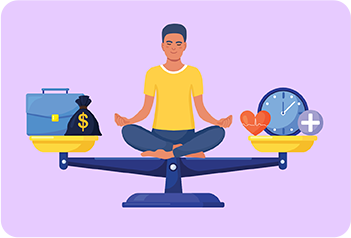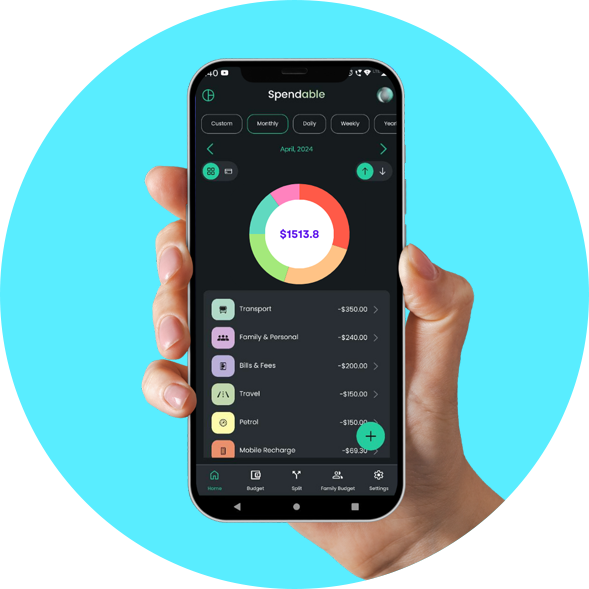10 Well-Guided Strategies for Reducing Everyday Expenses
There are several strategies that you can employ to reduce your everyday expenses and track daily expenses. Cannot believe it? Well, then take a look at a few of them to know how you can start saving money.
1. Automate Savings and Payments
One of the first strategies through which you can reduce everyday expenses is by automating savings and payments.
You can set up automatic transfers from your checking account to your savings, investments or debt repayment accounts. As you automate bill payments, you will be able to avoid late fees and penalties.
2. Use Cash for Discretionary Spending
Have you been relying on internet banking? Well, stop there. By using cash for discretionary spending, you can save a lot of money. You can initiate this expense management solution by allocating a specific amount of cash for non-essential expenses. These expenses may include
- Dining out
- Entertainment like movies
- Hobbies and more.
As you use cash, it helps to stick to a budget and avoid overspending. You should also consider implementing a “cash envelope system” for different expense categories.
3. Practising the 50/30/20 Budget Rule
Another great way through which you can save money is by practising the 50/30/20 budget rule. In this rule, you have to allocate 50% of your income towards necessary expenses like rent, utilities, groceries and more.
The remaining 30% of your income should be used for discretionary spending like entertainment, hobbies and travel. While the remaining 20% is great for savings, debt repayment and long-term goals.
4. Tracking Expenses
Here comes an expense management solution where you have to track the expenses. You can monitor your daily expenses by using applications like Spendable.
From categorizing the expenses to identifying areas for reduction, regular review and adjusting the budget to align with financial goals- everything can be done through this app.
When this expense tracker app is used, it can benefit in several ways. Individuals can gain a deeper insight into their financial situation and achieve their financial goals.
5. Use Discounts and Coupons
Besides using the Spendable money management app, you can take advantage of discounts, coupons and promotions for groceries, dining, shopping and more.
You can sign up for newsletters, follow social media or even choose to rely on coupon apps. In addition to this, buying generic or store-brand products for non-essential items can be considered.
6. Cancel Subscriptions and Negotiate Bills
Do you pay for subscriptions to TV channels that you don't even watch? Well, then it is time to review and cancel these subscriptions, memberships and services.
You can also consider bundling services or switching to cheaper alternatives. If these do not seem possible, then you can negotiate with service providers like internet or cable operators to secure better rates.
7. Shop Smart and Avoid Impulse Buys
Do you purchase items without comparing the prices? If yes, then you are making a mistake. You can conduct better money handling by comparing prices, buying in bulk and using cashback applications while shopping.
Moreover, when it comes to making non-essential purchases, make sure to think twice. Also, avoid shopping when you feel emotional or bored.
8. Use Referral Credits and Buy Generic/Used
There are referral credits available that you should not think twice before using. By leveraging these credits for services like streaming platforms or phone plans, you can save a lot of cash.
In addition to this, you can consider buying generic or used items instead of brand-new ones for non-essential purchases.
9. Cook at Home and Meal Prep
Have you been dining out every week? Is it that you are ordering food every day? Well, this is where you may be spending more than required. You can prepare meals at home to reduce food expenses and eat healthier at the same time. Additionally, a few other things to do include
- Planning meals earlier
- Buying ingredients in bulk
- Cooking in large batches and more.
As you do this, you will find yourself spending less and transforming your spending habits as well. It can also help you save more than imagined.
10. Reduce Utility Bills and Save on Groceries
When you implement energy-saving measures, you will be saving a lot on utility bills. This suggests using LED bulbs, power strips or smart thermostats.
You must also optimize water usage, insulate homes and maintain appliances. Moreover, you should plan meals as suggested before and use coupons to reduce grocery expenses.







 FREE
Available on
FREE
Available on

